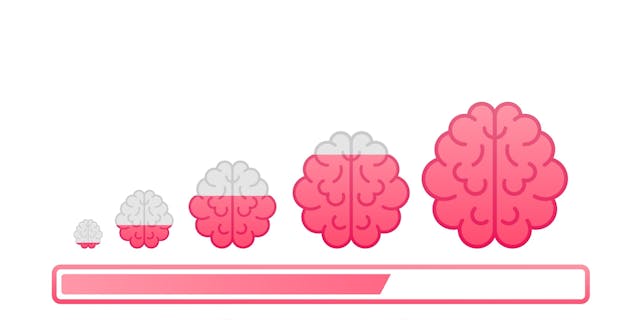Mimi Ito is a cultural anthropologist and learning scientist at UC Irvine. She’s been sharing her observations with EdSurge readers for nearly a decade now, reflecting on young people’s interest-driven and playful engagements as they relate to education.
Recently, we were fortunate to speak with her at length on the topic of game-based learning. Here, she comments on the history of gaming in education, its limitations and its potential—when done well—as a conduit for deep connections with learners.
EdSurge: How have you seen the field of game-based learning evolve?
Ito: A lot of times people think that, with game-based learning, we all care about the same thing, which is to make learning fun and engaging. And, at a high level, that's true. But within that broad umbrella, there are different paradigms.
You have the behaviorist paradigm, where you give a shiny, gamey exterior to something that's otherwise unpleasant—little dopamine hits to motivate kids to do something that they're not actually interested in. That's a very consistent paradigm across the evolution of game-based learning over the past two or three decades.
Then there's the more constructivist orientation: games as sites for meaning-making, in the Piagetian tradition. You'll see environments where young people have tools for creation, inquiry and self expression, with games that embody constructivism.
And the last category is what learning scientists usually call social constructivist or socially situated learning approaches. We’ve seen an expanding ecosystem of social activity and community-building that grows up alongside constructionist tools for creation and platforms to share user-generated content. In these, socially networked players are not only competing and generating creative content, but contributing to communities and participating in civic life.
What, in your opinion, makes good game-based learning?
Often with classroom learning, acquiring knowledge and practicing for skill development happen in isolation from genuine social purpose. But if you isolate that knowledge and skill development, that's when you have to manufacture motivation. If you can embed skill development within a genuinely motivating social set of rewards, learning is deeper and more enduring. Because, as humans, we're ultimately rewarded by finding our place in the world, getting recognized by people we care about, making an authentic contribution.
If you want to cultivate soft skills and social-emotional competencies, it’s even more important to take into account communities, culture and values. Networked gaming communities can be really powerful environments where individual inquiry and creation are part of meaningful social environments for competition and collaboration. Ideally, knowledge acquisition, skill development and social purpose are stacked and working together in an ecosystem.
It's pretty rare to see that full stack of game-based learning working all the way into a classroom-knowledge and skills-development context. But one area where you get a lot of genuine motivation that is tied to games is competition, right? In esports, the status and recognition are authentically motivating. There's sort of an inherent fun in crushing your opponent and those competitive dynamics, but the extra layer of the social status and validation of a school-sponsored thing is different.
NASEF and other programs are bringing esports’ competitive gaming into the context of school. So, you have the social status and peer-recognition dynamics, and you're supporting skills that are career and academically relevant. You get all those things stacking up: genuine interest in the competitive play, social recognition and skill development. And, ideally, you get all of those layers working in a single integrated, programmatic and strategic way.
That's where gaming is interesting. You can really incorporate math and science and other subjects within the content of the community and platform in ways that give a bigger set of opportunities for connecting. And gaming environments make them tactile and social and interactive.
Building on that idea, what are some practical ways for schools to leverage games as a means of strengthening the connection between teachers and their students?
It's not realistic to expect that every teacher is going to become a Minecraft expert or competitive gamer. Teachers don’t have to be experts to have a big impact. You can be an eSports GM (general manager) without being a competitive player. Even if it's just taking an interest—you don't have to be able to play. A teacher can sponsor space for positive gaming to happen. And in fact, that is really big. It's huge!
There's a lot you can do as a sponsor and a cheerleader and a curious, non-judgmental person to create space for game-based learning in your school. It doesn't have to be building a whole new school or remaking your curriculum. Connected learning is about building space and connections between school and young people's interests, culture and identities. It's really about finding those little moments of intersection, not having school own that entire burden of interest-driven learning—kids are doing the interest-driven learning on their own quite fine, thank you. The pathways to influencing traditional achievement don't have to be about literally teaching math within a game. Just create openings for games and play and identities that kids have outside of school to live and breathe within the school walls, and to be noticed, seen and heard by educators.
When we talk to students about the things that really influence their life choices and school achievement, often they will mention these very small conversations, where an educator showed a genuine curiosity in their interest. That seems like such a small thing for an educator—it's so much easier than teaching calculus—but those are the things that actually change lives. Educators need to be valued for all those everyday things that they do that seem small but are about those social and cultural connections. There's so much power in that. I think it’s underappreciated and underrecognized. The play part is huge too—just having fun together, playing a game on the playground. They're the things that sit in a deeper spot with young people long after they've forgotten their math facts.



